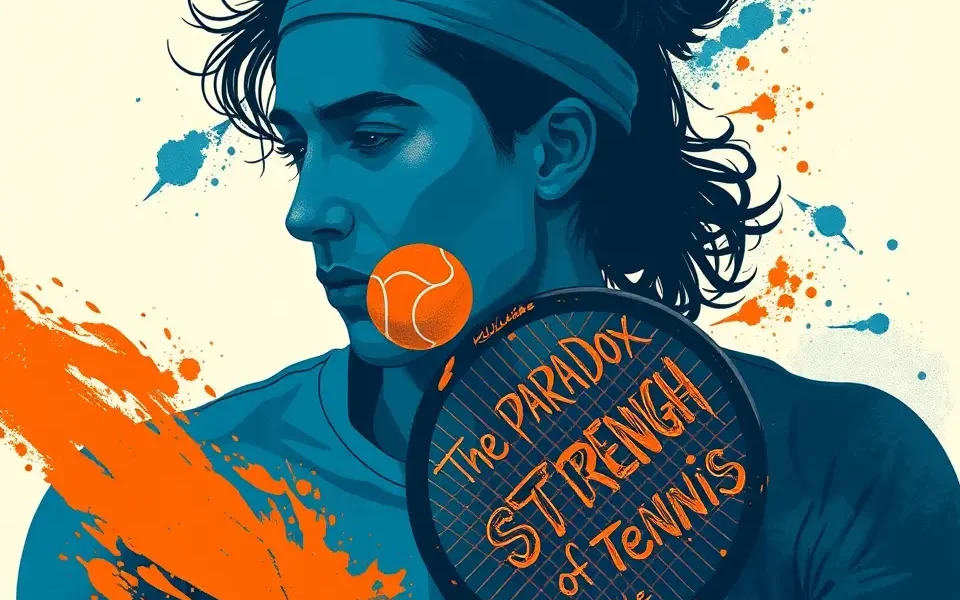Iga Swiatek has taken the tennis world by storm, captivating fans with her powerful forehand, mental fortitude, and all-court game. Yet, some observers wonder if the very attributes that define her success might also contribute to occasional struggles on the court. Let’s delve into the fascinating discussion around Iga Swiatek’s strengths and whether they could, paradoxically, lead to certain challenges.
The Pillars of Swiatek’s Success
To understand the debate, it’s crucial to pinpoint the key elements that have propelled Swiatek to the top of the WTA rankings:
- Formidable Forehand: Swiatek’s forehand is undeniably a major weapon. Its combination of power and heavy topspin allows her to dictate points, push opponents behind the baseline, and create opportunities for winners.
- Mental Toughness: Renowned for her composure under pressure, Swiatek possesses remarkable mental strength. This allows her to perform at her best in crucial moments, as evidenced by her Grand Slam victories.
- All-Court Adaptability: While initially recognized as a clay-court specialist, Swiatek has proven her versatility by achieving success on hard courts as well. Her ability to adjust her game to different surfaces is a significant advantage.
- Solid Serve: Swiatek’s serve has evolved into a reliable tool. She uses it strategically to gain free points and set up favorable positions for her groundstrokes.
- Exceptional Athleticism and Movement: Swiatek’s agility and speed enable her to cover the court effectively, retrieve difficult shots, and maintain an aggressive playing style.
The Argument: Strength as a Potential Source of Struggle
The central question is whether Swiatek’s reliance on these strengths could, at times, expose vulnerabilities. Here’s a breakdown of the arguments:
Over-Reliance on the Forehand
- Potential for Breakdown: While a dominant weapon, an over-dependence on the forehand can become a liability if the shot isn’t firing consistently. If Swiatek’s forehand timing is off or her opponent can effectively neutralize it, her game can become less effective.
- Exploitable Patterns: Opponents may study her tendencies to favor the forehand and develop strategies to force her into backhand rallies, where she might feel less comfortable.
Mental Pressure and Expectations
- The Weight of Expectation: Swiatek has openly discussed the pressure she faces as a top-ranked player. The expectation to win every match can be mentally taxing, potentially leading to anxiety and affecting her performance.
- Emotional Vulnerability: While mentally strong, Swiatek is also known to express her emotions on court. While this is a sign of authenticity, some argue that it could make her vulnerable to opponents who try to exploit her emotional state.
Hard Court Consistency
- Adapting to Hard Courts: While Swiatek has achieved success on hard courts, maintaining the same level of dominance as on clay has proven challenging. The faster surface can reduce the effectiveness of her topspin-heavy game and require quicker decision-making.
The Evolving Game
- Continuous Improvement: Players and coaches are constantly analyzing Swiatek’s game to identify weaknesses and develop counter-strategies. To stay ahead, she needs to continuously evolve her game and add new dimensions to her playing style.
Former Stars Weigh In
Tennis analysts and former players have offered their perspectives on this topic:
- Some analysts have pointed out that Swiatek’s forehand, while powerful, can become erratic under pressure. They suggest that she needs to develop more variety in her game to avoid becoming predictable.
- Others have noted that the mental pressure on Swiatek is immense, and she needs to find ways to manage expectations and maintain her composure, especially during challenging matches.
- Some former players believe that Swiatek’s transition to hard courts requires further refinement. They suggest that she needs to flatten out her shots and improve her net game to be more effective on faster surfaces.
Swiatek’s Perspective
Swiatek herself has acknowledged the need to embrace her weaknesses and recognize that she is “only human.” She has spoken about the criticism she receives for expressing her emotions on court and emphasized that losing or having crises is not a sign of weakness.
The Path Forward
Ultimately, whether Swiatek’s strengths contribute to her struggles is a matter of perspective. While her reliance on certain attributes may create vulnerabilities, it’s also what makes her a unique and formidable player. The key to continued success lies in:
- Adding Variety: Developing a wider range of shots and tactical approaches to keep opponents guessing.
- Mental Fortitude: Maintaining a strong mindset and managing the pressures of being a top player.
- Adaptability: Continuously refining her game to suit different surfaces and playing styles.
- Self-Awareness: Recognizing her strengths and weaknesses and using them to her advantage.
Iga Swiatek’s journey is a testament to her talent, hard work, and dedication. As she continues to evolve as a player and a person, she’ll undoubtedly face challenges along the way. However, with her unwavering spirit and commitment to improvement, she’s well-equipped to overcome any obstacles and solidify her place as one of the greatest tennis players of all time.








No Comment! Be the first one.